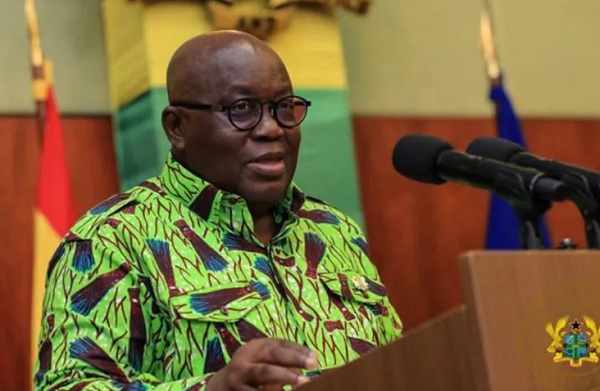The President, Nana Addo Dankwa Akufo-Addo, has tasked the Ministries of Food and Agriculture, and Transport to implement measures to keep food prices low.
Particularly, they are also to ensure that the cost of transportation of food to market centres is lower.
The Minister of Information, Kojo Oppong Nkrumah, who disclosed this to the Daily Graphic yesterday, said the aim was to bring down the general price level of goods and services, particularly for food products, to further reduce inflation.
The move is part of a raft of measures the government is implementing to crank the economy to continue its growth, which has so far defied forecasts.
It will also augment measures by the Bank of Ghana (BoG) which has consistently maintained that it would continue a tight monetary policy stance aimed at further driving down non-food inflation.
The BoG policy rate is currently pegged at 30 per cent, from its lowest of 13.5 per cent which subsisted between March to September 2021.
The economy has been battling with severe challenges in the last two years, with inflation hitting a 22-year high of 54.1 per cent in December 2022 and an unsustainable public debt above 93 per cent of the country’s productivity, measured by Gross Domestic Product (GDP).
Last Wednesday, the Ghana Statistical Service announced a year-on-year inflation rate for September as 38.1 per cent.
It also showed that the month-on-month inflation between August 2023 and September 2023 was 1.9 per cent.
Boost for growth
Mr Oppong Nkrumah further disclosed that growth was expected to be boosted further with the opening of the Zonda Vehicle Assembly Plant and other industrial plants which would increase output and jobs.
President Akufo-Addo is expected to commission the second phase of the Zonda Sinotruk Assembly Plant in Tema tomorrow.
IMF support
The International Monetary Fund (IMF) Extended Credit Facility programme has started bearing fruits four months into its implementation, as Gross Domestic Product (GDP) growth has rebounded strongly, averaging 3.2 per cent in the first two quarters of the year.
Under the IMF programme, the end of year growth projection was 1.5 per cent.
Inflation has also dropped to 40.1 per cent in August and further down to 38.1 per cent for last month, while the cedi’s depreciation has slowed from the beginning of the year to date, after depreciating cumulatively by about 23.5 per cent year-to-date compared to a cumulative depreciation of 37.6 per cent over the same period in 2022.
On the fiscal front, the primary balance on commitment basis for the first half of the year was a surplus of about GH¢2 billion compared to a target of a deficit of GH¢4 billion.
Gross International Reserves (GIR), which measures how the country could fund its import bill, also stood at $2.1 billion equivalent to one-month import cover, compared with $1.5 billion (0.6 month of import cover) recorded at the end of December 2022.
On the debt front, the government has concluded the domestic debt exchange programme (DDEP), which saw it swap old bonds valued at GH¢82 billion for 12 new ones at reduced coupon rates and longer tenors.
The exchange of dollar denominated local bonds of about $742 million also saw a participation ratio of 91.7 per cent; the exchange of cocoa bills worth GH¢7.7 billion also saw a participation ratio of 97.4 per cent, while the exchange of pension funds holdings of treasury bonds of about GH¢29.6 billion also saw a participation ratio of 95.3 per cent.
The government is also looking forward to signing a memorandum of understanding (MoU) with the bilateral Official Creditor Committee (OCC) in the coming weeks to restructure debts of $5.4 billion.
The country is also seeking to reach an agreement with its external commercial creditors by end of the year to restructure debts of $14 billion, out of which $13 billion are in bonds.
The key objectives of the extended credit facility programme are to, among others, restore fiscal sustainability, re-anchor inflation expectations by achieving low and stable inflation, strengthen the exchange rate regime, restore investor confidence and regain market access while unlocking other financing sources.
Growth to be revised
Responding to questions from the media at a government and IMF joint press conference in Accra recently, the Ghana Mission Chief of the International Monetary Fund (IMF), Stéphane Roudet, said growth for the rest of the year was now expected to be stronger than what was projected under the fund programme.
“Growth for the first half was above three per cent and this gives you an idea of the difference between what is happening on the ground and what the assumptions of the programme were”.
“So yes, we will revise growth for this year but we will share the exact details later,” he stated.
Mr Roudet, however, cautioned that was not the end of the road as inflation, currently at 40.1 per cent, was still high, noting that the IMF wanted to see it drop further.
He said the economy was going in the right direction, with things improving but there was still more work to be done.

